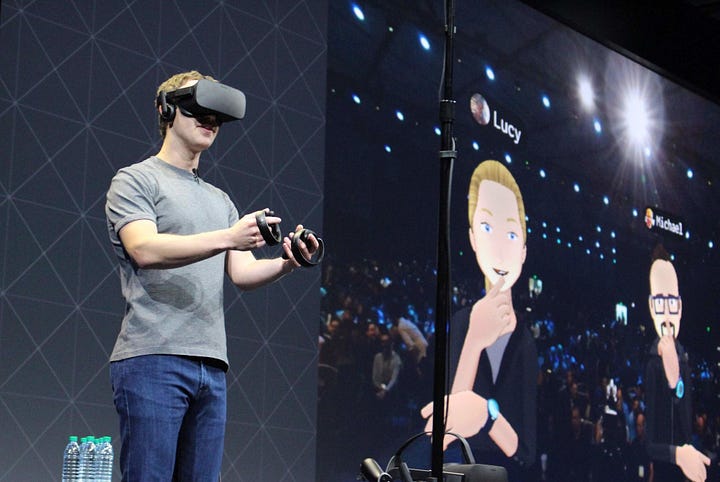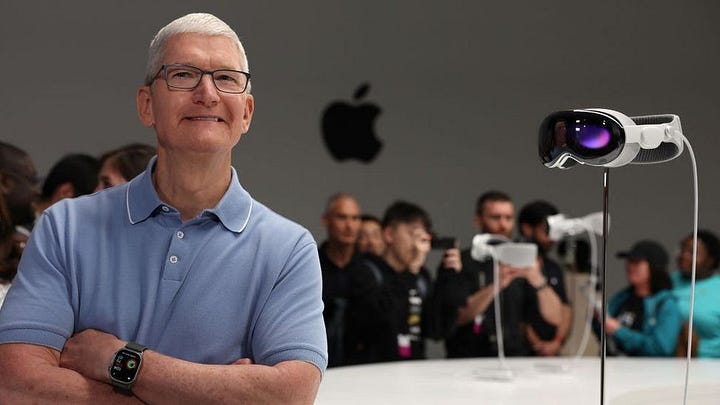Going Meta
Meta may be Android to Apple's Apple.


Congrats to Apple and everyone who worked on the Vision Pro. But I wouldn't count out Zuck and Meta, for four reasons.
First, we're still in the bulky headset era. That means Oculus Quest's focus on gaming is a better fit. A gamer doesn't care if they look weird with a headset on, because no one else is around.
Second, Zuck may decide to pursue an Android strategy against Apple. Their new Twitter competitor is rumored to be built on Mastodon, he spoke quite a bit about interoperability in his public talks, and he's certainly aware of just how much traction the partially open/leaked LLaMa got as well. So as a corporate decision, he may use open source to counterposition against Apple.
Third, and relatedly — while he did try and fail with Libra, the fact that he tried means he's more open to crypto than the other big tech CEOs. Probably they should have just added Bitcoin payments to Messenger. And Zuck gets why cryptocurrency and cryptographically provable items would be a big component of an international metaverse. Apple isn't as enthusiastic.
Fourth, it's in the name. The metaverse is existential to Meta in a way it isn't to Apple. So Zuck is willing to wear the headset, while Apple execs aren't yet. That's big. Apple may care too much about appearing cool to go all-in on gamers.
TLDR: if it turns out gaming, interoperability, crypto, and being nerdy for a while is what bootstraps the metaverse — and I think it might be — then Meta may still do very well.
Centralized vs Decentralized Counterpositioning
A centralized-vs-decentralized counterpositioning happens repeatedly in tech.
It happened with Mac vs Windows on the client, Windows vs Linux on the server, iOS vs Android on the phone, and now perhaps Apple vs Meta on the headset.
Note that Windows was *more* open than MacOS on the client, but *less* open than Linux on the server. Anyone could built a Wintel box in the 2000s, so it was more open than Apple's laptops. But you had to pay Windows licensing fees on the server, and early Google didn't want to do that, so it used Linux.
The point being: centralized-vs-decentralized is a recurrent motif, a way that economic spaces partition, and in part a business decision. The centralized party can sometimes be forced into the decentralized position or vice versa, and has to adapt to survive. Microsoft was decentralized relative to Apple and centralized relative to Linux. And centralized Facebook may need to morph into (relatively) decentralized Meta.
So: there will be other players, but my hunch is that Meta goes to the Android corner of the market. For one thing, Apple's $3499 price point now makes Meta's $499 headset look inexpensive...



Great thoughts and great learning. Enjoy reading about it.